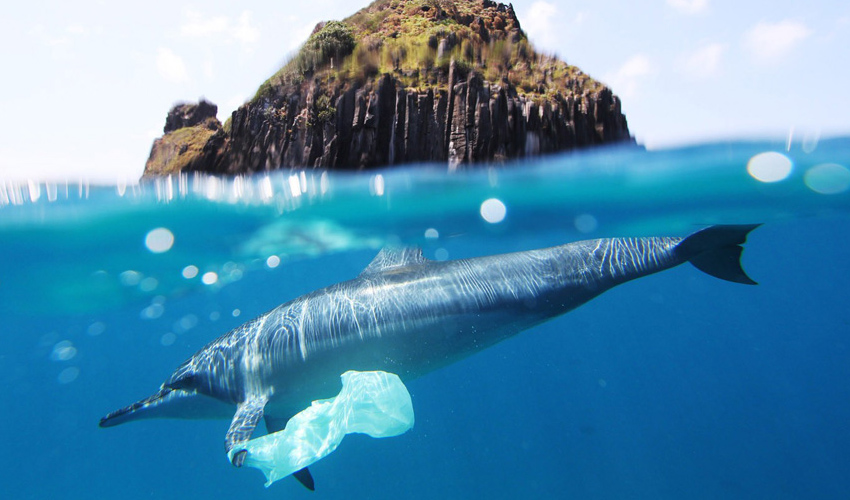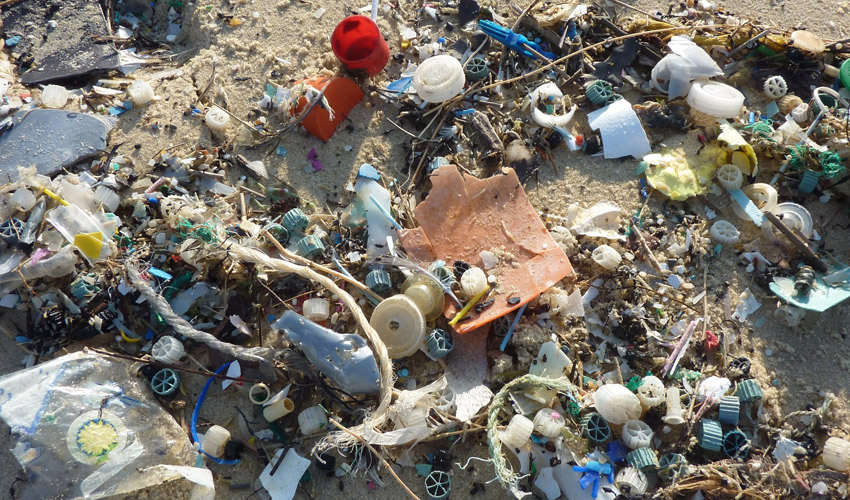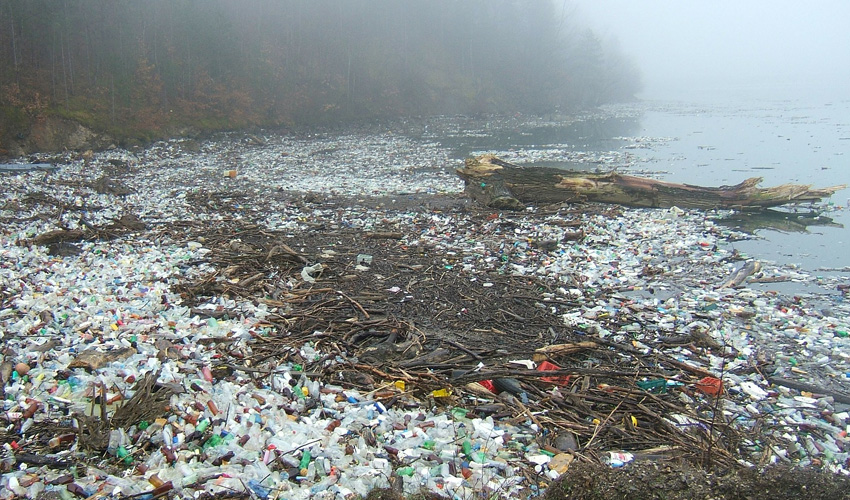IUCN Director General’s statement for World Environment Day and World Oceans Day 2018
We have all seen the images of plastic polluting beaches and entangling marine animals from the tropics to the Arctic. Plastic pollution has become a truly global environmental problem, just as plastic itself is an all-pervasive part of our lives. On this World Environment Day, we are reminded that this challenge has no easy solutions. As such, we must accept that looking for a silver bullet will create the illusion of progress while the real problem only gets worse.
The sheer scale of humanity’s plastic ‘habit’ can be daunting. Today, we consume our way through over 300 million tonnes of plastic per year, and mounds of plastic waste follow. Every minute, the equivalent of a garbage truck of plastic is dumped into the ocean.
Marine life bears the brunt of the plastic contaminating our oceans, but the consequences for us humans are also disastrous.
Apart from the physical damage plastic causes, it contains harmful chemicals, damaging to both humans and wildlife. Plastics additives such as phthalates, and chlorinated, brominated and fluorinated compounds pose significant risks to human health. In the absence of decisive action, 1.2 million tonnes of additives per year could enter our oceans by 2050, and, together with the plastic in soil and freshwater, they will continue to contaminate our food chain and water supplies. The oceans provide protein-rich food for billions of people, so the chemical contamination they introduce into the food chain poses a serious threat to food security and health. Worldwide, marine plastic pollution is costing us between US$ 13 to 40 billion per year as tourism, fisheries and shipping revenue is lost.
As the dire consequences of plastic pollution come into focus in the eye of global public opinion, so does the urgency of the situation. We need to act quickly. We only have 11 years left to reach the Sustainable Development Goals, and plastic pollution is undermining our progress towards healthy oceans (SDG 14), food security (SDG 2), sustainable production and consumption (SDG 12), as well as many other global goals. But, given how ingrained plastic has become in our lives, there is no silver bullet.
This means that we must accept that the material will be here to stay, at least for the foreseeable future. But it does not mean that we need to accept it polluting our planet.
Our approach to tackling the plastics dilemma needs to address both consumption and how plastic enters the environment. This means that we must first question the way we use plastic in our throw-away culture. We are overconsuming plastic, needlessly adding to our energy and water consumption through its production, as well as to the related waste flows. So above all, it is imperative that we reduce the overall amount of plastic that we use.
And there are examples that we can follow. Take packaging, which accounts for about one-third of all plastic produced, much of it designed for single-use. Last week, the European Commission proposed a ban on some single-use plastic products including straws, cutlery and plates. IUCN welcomes the momentum brought to this issue by the UN, as reflected by the theme of this year’s World Environment Day and World Oceans Day.
Then we must stop the flow of that plastic into the environment, in part by better controlling the plastic journey from factory to the recycling plant. Doing so will require significant investment in solid waste management infrastructure and public awareness. Governments, industry and civil society all have a responsibility here.
And there is much more to plastic pollution than meets the eye. Tracing the complex pathways along which plastic leaks into the environment is key to closing the plastic tap. For instance, a 2017 IUCN report found that the tiny plastic particles washed off products such as tyres or clothes are a significant source of plastic pollution in developed countries. This means that beating plastic pollution requires a rethink of the entire plastic lifecycle. We need profound technical, economic and political changes, from filters in washing machines to retain the plastic particles washed off clothes, to more robust legal frameworks that move us closer to a circular economy.
Plastic pollution is one of the great dilemmas of our time. This is why both World Environment Day and World Oceans Day have chosen this challenge for their theme in 2018. It is a global problem of great complexity. So it stands to reason that the solutions will be at least as complex, involving people from every part of the world and in every walk of life. Only by bringing this great diversity of actors together under a common cause can we finally turn the tide on plastic pollution.



